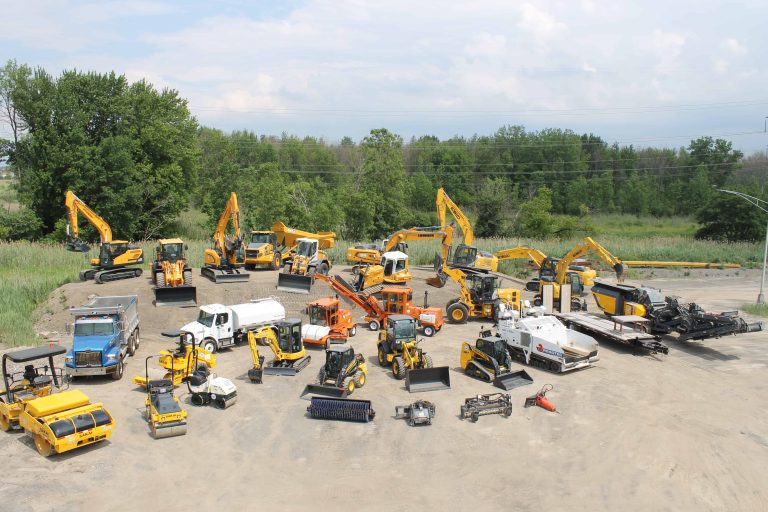Dozer Rental: Powerful Earthmoving Equipment for Your Construction Demands
Dozer Rental: Powerful Earthmoving Equipment for Your Construction Demands
Blog Article
Optimize Your Spending Plan by Understanding the Expenses Connected With Construction Devices Services
Comprehending the full extent of expenses connected with construction devices rentals is crucial for optimizing your budget. While the preliminary rental cost may appear straightforward, countless additional expenses-- such as transport, fuel additional charges, and maintenance-- can quickly gather, affecting your financial planning. Moreover, knowing various costs and the complexities of rental arrangements can help stay clear of unexpected monetary burdens. What strategies can be utilized to effectively handle these costs and make sure an extra efficient rental experience?
Overview of Rental Prices
When thinking about construction tools rentals, recognizing the connected costs is vital for efficient budgeting and task planning. Rental prices can differ dramatically based on a number of factors, consisting of equipment type, period of service, and place. The first rental charge frequently shows the tools's market need and its associated functional capabilities, affecting the general expenditure.
Along with the base rental rate, ancillary costs may emerge, such as transportation fees, fuel additional charges, and upkeep charges. It is important to account for these additional expenses to accurately evaluate the overall price of renting equipment. Moreover, the rental period can affect prices; longer services might receive discounted rates, while short-term leasings may sustain higher daily charges.

Breakdown of Rental Rates
An extensive understanding of rental rates is important for professionals and project supervisors intending to enhance their budgets. Rental prices for building and construction devices usually consist of numerous parts, including base prices, time-based costs, and usage fees.
Base prices are the core fees related to the rental of the tools, commonly identified by the kind and dimension of the machinery. These prices can differ considerably, affected by elements such as tools need, availability, and local market trends. Time-based costs, which may be daily, weekly, or monthly, offer to fit different task timelines and rental durations.
Additionally, rental prices may consist of use fees, which are relevant when tools is utilized past a specified limit, ensuring that the rental business can represent deterioration. Seasonal need fluctuations can additionally influence rental rates, with peak building and construction seasons typically regulating greater costs.
Additionally, recognizing the rental company's policies pertaining to maintenance and insurance policy can provide further insight right into the overall price framework. By examining these components, contractors can make educated decisions, making sure the selection of rental devices aligns with both project needs and budget plan constraints.
Added Fees to Take Into Consideration
Understanding the intricacies of additional fees is important for professionals to handle their total service expenditures properly. Beyond the basic rental prices, different extra fees can substantially impact the overall cost of equipment leasing. These charges commonly include distribution and pick-up charges, which can vary based upon distance and logistics associated with transporting the tools to and from the work website.
Furthermore, some rental companies might enforce gas additional charges if the equipment is returned with less gas than when leased. It is also necessary to be aware of potential cleaning charges, especially for specialized tools that calls for thorough maintenance after use.

Thoroughly examining the rental arrangement and clearing up these additional costs upfront can assist service providers make certain and stay clear of unanticipated costs that budgets continue to be intact throughout the task lifecycle.
Repair And Maintenance Expenses
Routine maintenance and repair work costs are often forgotten aspects that can substantially influence the general price of building tools rentals. When leasing tools, it is essential to consider not only Homepage the rental fees yet also the prospective expenses connected with keeping the machinery in optimal operating condition.
Numerous rental business consist of basic maintenance as part of the rental contract; nevertheless, extra extensive repair work or unexpected breakdowns can cause added expenses. It's important to review the rental agreement very carefully to understand what upkeep solutions are covered and what duties fall on the occupant.
Moreover, equipment that is not properly maintained can lead to inadequacies on duty site, possibly triggering delays and boosting task prices. To minimize these risks, it is advisable to conduct normal evaluations and keep open communication with the rental copyright pertaining to any kind of problems that occur throughout use.
Insurance and Obligation Costs
Insurance and liability prices are essential parts that can substantially affect the general cost of building equipment rentals (aerial lift rental). These costs ensure that both the rental firm and the client are protected from possible economic losses emerging from mishaps, damages, or theft during the rental duration

In addition, customers ought to know any deductibles or exemptions in the insurance plan, as these can impact prospective out-of-pocket expenditures. Recognizing the conditions of any type of insurance coverage is vital to prevent unanticipated costs. Eventually, budgeting for insurance policy and responsibility expenses can aid make certain a smoother rental experience and secure versus economic risks connected with building and construction tasks.
Verdict
In conclusion, a comprehensive understanding of click over here the costs linked with building equipment services is essential for reliable budget plan management. Eventually, notified decision-making concerning tools leasings contributes to the total success of building endeavors.
Rental expenses can vary significantly based on numerous aspects, consisting of devices type, period of rental, and area (heavy equipment rental). The rental duration can impact prices; longer rentals might qualify for reduced rates, while temporary rentals could incur greater daily costs
By conducting thorough research study and engaging with trusted rental companies, service providers can efficiently browse the intricacies of rental pricing, eventually optimizing their monetary resources.
Beyond the basic rental prices, various supplementary fees can significantly impact the total expense of equipment leasing. Rental companies usually supply liability insurance coverage that covers injuries to third parties or damages to residential property, while devices damages insurance can cover the price of repair services or substitute if the rented out equipment is harmed.
Report this page